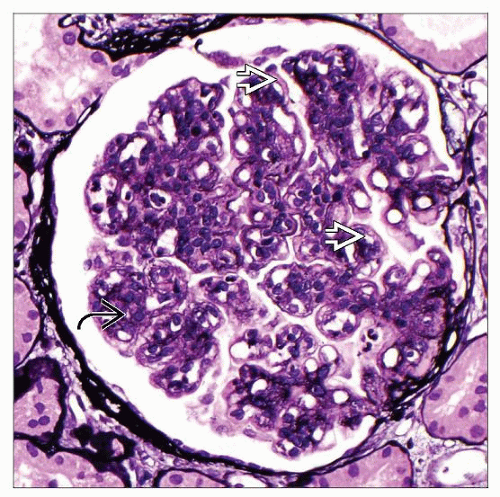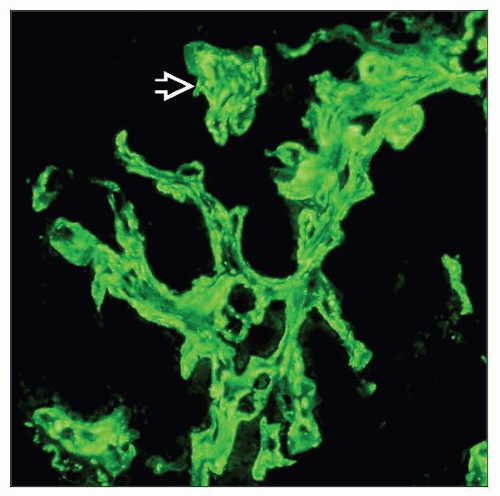Lyme Disease Membranoproliferative Glomerulonephritis
Neeraja Kambham, MD
Key Facts
Terminology
Immunological renal manifestation of MPGN, type 1 due to Borrelia burgdorferi infection
Clinical Issues
High level of clinical suspicion is needed for diagnosis of MPGN due to Lyme disease
Antibiotic therapy directed against spirochete
Immunosuppressive therapy directed against host immunological response causing MPGN
Microscopic Pathology
Diffuse and global glomerular hypercellularity is seen with lobular accentuation
Dominant C3 staining and electron-dense deposits in mesangium and subendothelium
Serological tests include ELISA and confirmatory Western blotting
Top Differential Diagnoses
MPGN due to other causes
TERMINOLOGY
Definitions
Glomerulonephritis, typically with a membranoproliferative glomerulonephritis (MPGN) pattern, associated with Borrelia burgdorferi infection
ETIOLOGY/PATHOGENESIS
Infectious Agents
Lyme disease is caused by a spirochete, B. burgdorferi, transmitted by ticks of genus Ixodes
Immune-complex Formation
B. burgdorferi infection causes chronic antigenemia and immune complex formation
Stay updated, free articles. Join our Telegram channel

Full access? Get Clinical Tree







